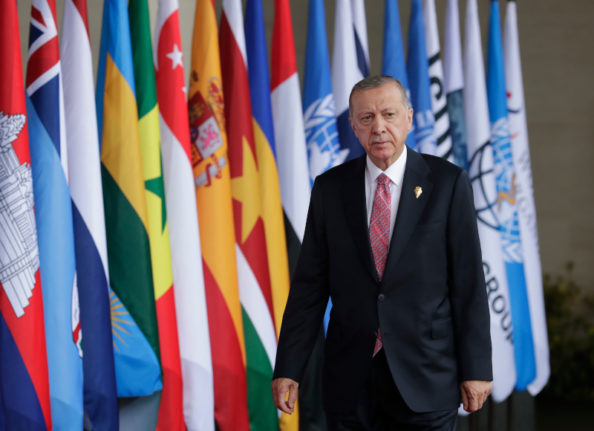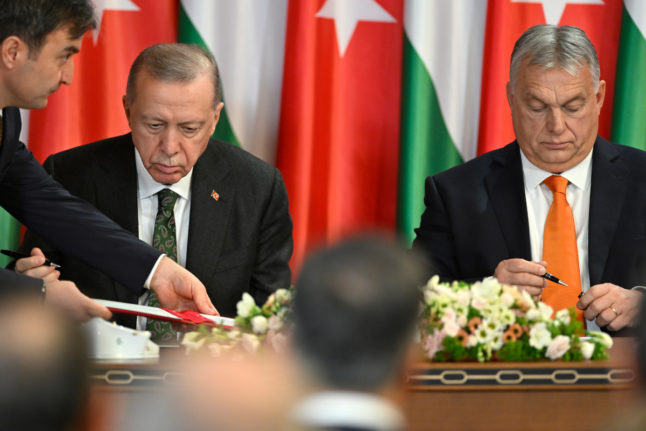“A decision has been taken not to initiate a preliminary investigation,” a spokeswoman for Sweden’s Prosecution Authority told AFP, providing no further details.
Speaking to newspaper Aftonbladet, public prosecutor Lucas Eriksson said he had received a complaint of “defamation” regarding the effigy.
“But I did not think it could amount to defamation,” Eriksson told the newspaper.
The incident further strained relations between Sweden and Turkey, which is currently holding off on ratifying Sweden’s Nato accession.
Turkey summoned Sweden’s ambassador in Ankara last week after the Kurdish Rojava Committee of Sweden compared Erdogan to Italy’s late dictator Benito
Mussolini.
“History shows how dictators end up,” the group wrote on Twitter, accompanied by a video showing pictures of Mussolini’s 1945 execution and then a dummy dressed up to look like Erdogan swinging from a rope outside Stockholm’s City Hall.
The action was condemned by Swedish Prime Minister Ulf Kristersson and Foreign Minister Tobias Billström, who both said it was an attempt to “sabotage” Sweden’s Nato membership bid.
Sweden and its Nordic neighbour Finland dropped decades of military non-alignment last year when they applied to join the Western defence alliance in response to Russia’s invasion of Ukraine.
Turkey and Hungary are the only Nato members who have not ratified the bids by votes in parliament.
Ankara argues that Sweden, in particular, has failed to fulfil a series of commitments both countries made at a Nato summit in June.
Erdogan then lifted his objections to their applications in return for pledges to crack down on Kurdish groups that Ankara views as “terrorists”.
Sweden has since approved a constitutional amendment that will make it possible to pass tougher anti-terror laws.
On Saturday, Erdogan’s foreign policy adviser Ibrahim Kalin told reporters that the country was “not in a position” to ratify Sweden’s Nato membership.



 Please whitelist us to continue reading.
Please whitelist us to continue reading.
Member comments